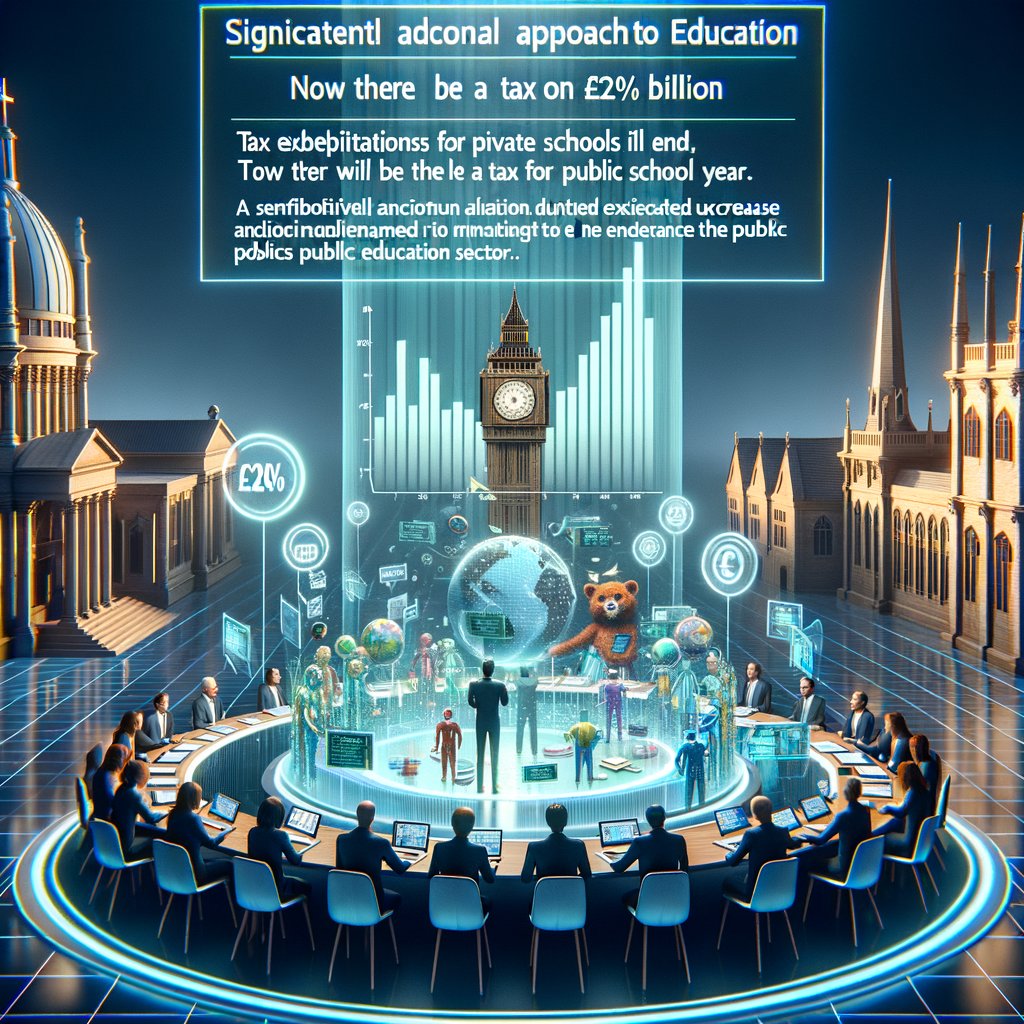Image created by AI
UK Government Ends Tax Breaks for Private Schools to Fund Public Education
In a decisive move aimed at bridging the educational gap between private and public schools, the UK's Labour government announced a significant policy change that will see the end of longstanding tax exemptions for private educational institutions. Starting on January 1, these schools will be required to pay a 20 percent value-added tax (VAT) on tuition fees. This additional revenue, estimated to be around £1.5 billion by the 2025/2026 school year, will primarily be used to bolster the public education sector, which serves 94 percent of the nation’s children.
Finance Minister Rachel Reeves emphasized the necessity of the change, stating, "It's time things are done differently." The government anticipates that this strategy will not only secure necessary funding but also democratize the quality of education in England, making high educational standards accessible to all, regardless of financial background.
Education Secretary Bridget Phillipson reiterated this sentiment, commenting that quality education shouldn't be exclusive to those who can afford private schooling. The new funds will enable the hiring of approximately 6,500 new teachers, significantly impacting teacher-to-student ratios and overall educational quality in public schools.
Addressing concerns about potential negative impacts on private schools, the government acknowledged that tuition fees, which currently average at £18,000 per year as per the Independent Schools Council, are likely to see about a 10 percent increase. The hope is that private institutions will absorb some of the additional costs without passing the full burden onto students' families.
Opponents of the policy have voiced fears about a potential surge in state school enrolments overwhelming the system. However, research from the Institute for Fiscal Studies indicates that the number of children in state schools is expected to decline by 2030 due to demographic trends, mitigating concerns about unsustainable increases in student numbers.
The financial adjustments come after a 14-year period under Conservative rule, during which disparities between private and state educational standards reportedly widened. By redirecting funds to public schools, the government aims to level the playing field and ensure a high standard of education across the board.
With the Labour government securing a landslide victory in the recent July elections under pledges to rejuvenate economic growth and enhance public services, this move marks a significant step in fulfilling their campaign promises. By redistributing resources from private schools to the public sector, the UK is taking bold steps towards educational equality and excellence.





